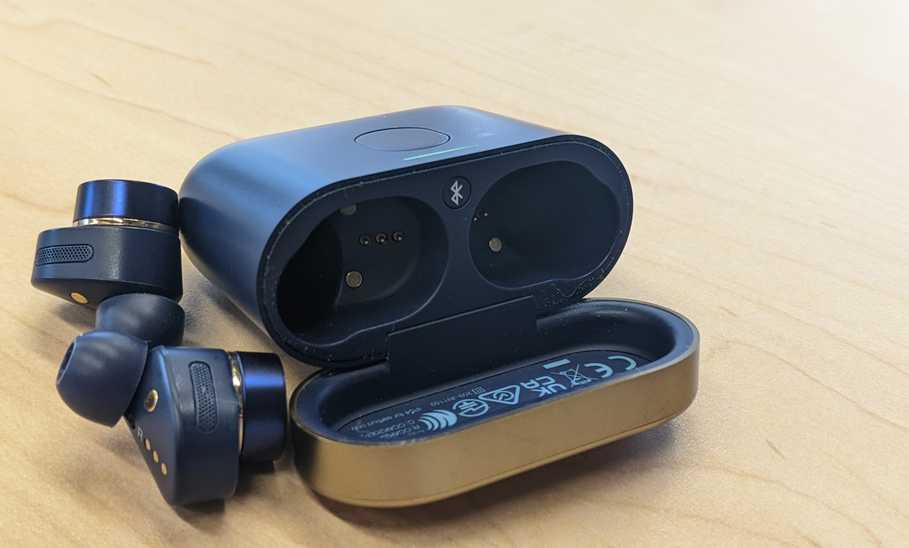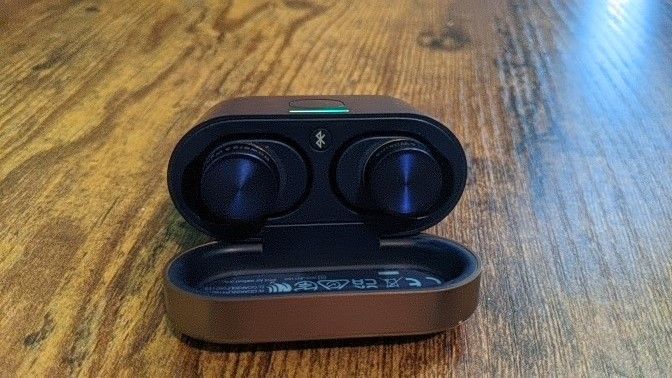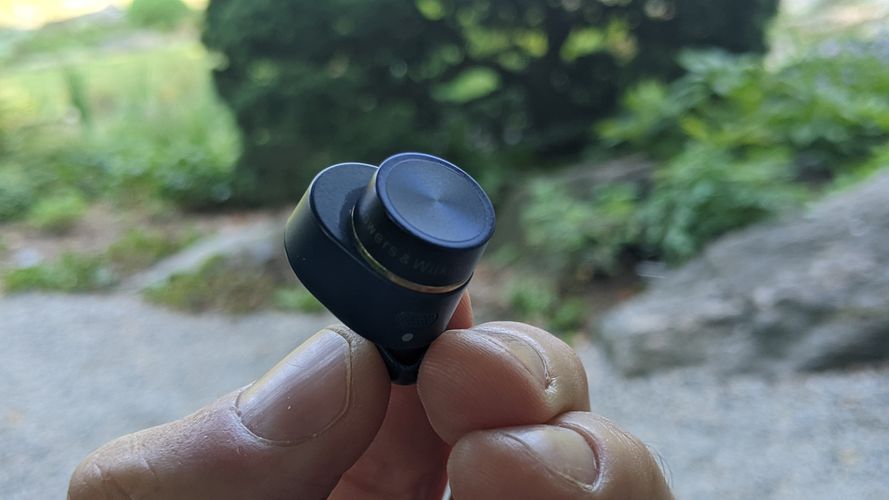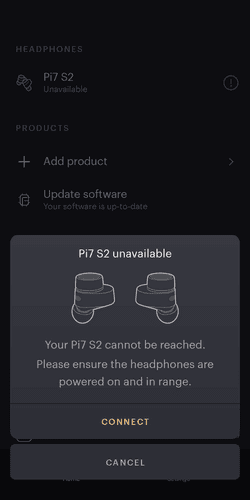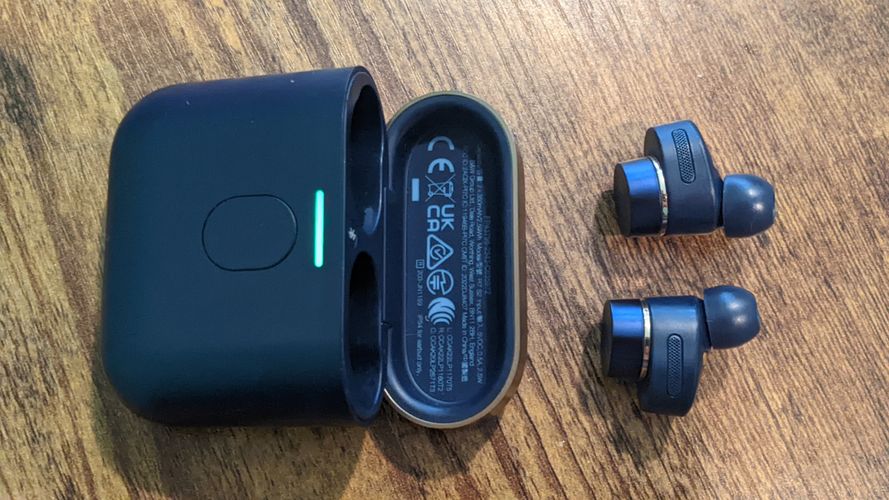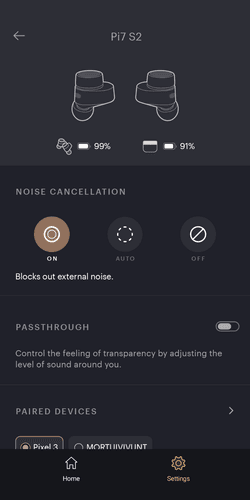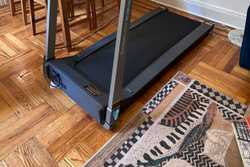I spent this past summer testing the Bowers & Wilkins Pi7 S2 earbuds for running, daily wear, commuting, and even sleep to silence noisy neighbors. A bumpy start appeared to improve with an app (and possible firmware?) update, so my review is based on the recent half of that experience, which remains intrusively buggy. Despite top sound quality, noise cancellation, style, and comfort, the Pi7 S2s falter on seamless experience that would justify their $399 price tag. These wireless earbuds are beautifully designed, but digitally frustrating thanks to parboiled functionality.

Pi7 S2 Earbuds - Satin Black | In-Ear True Wireless Headphones | Bowers & Wilkins
Unboxing and first impressions
These are uniquely stylish earbuds. Contrary to the deep egg shape popularized by Apple, their tall elliptical curvature ensures they tilt snugly and comfortably in any ear shape. Even the white Pi7 set defies AirPod comparisons.
They’re tough, too. The Pi7 S2 resisted scratches or smudges even after much use and bouncing on the sidewalk during runs prior to finding my best silicone bud fit. Their plastic case resists fingerprints, and only pulled minor indentations after months of banging around in my bag.
Unfortunately, my first flight previewed Pi7’s failures. The buds immediately and effectively found my phone, autoplaying Spotify as I put them in my ears. However, I had to jump apps to a runaway podcast while still configuring the Bowers & Wilkins Music app—meaning I couldn’t stop them. It’s minor, but the first knot in a string of UX exasperations. Enough tiny issues destabilize the smooth usage expected for $400.
Pros and cons
Pros:
- Great audio
- Effective and versatile noise cancellation and pass-through options
- Beautiful, sturdy design
- Comfortable and well-seated
- Easy audio connect
- Excellent battery life and recharge rate
Cons:
- Inconsistent performance
- No tactile options for volume control
- UI needs tightening up for speed, effectuality, and redundancy
- Requisite app is nearly useless with a humongous footprint
- Biggest selling points are least reliable
- Pricey
Price
The Bowers & Wilkins Pi7 S2 wireless earbuds cost $399 on the brand’s website.

Pi7 S2 Earbuds - Satin Black | In-Ear True Wireless Headphones | Bowers & Wilkins
Specifications
Drivers
Each earbud has a 9.2mm drive unit.
Battery life
Bowers & Wilkins says you can play five hours with noise cancellation off, plus another 16 hours of juice before the case needs to be recharged. The earbuds themselves charge in about 40 minutes, at a rate of two hours’ performance for every 15 minutes charging.
Weight
The earbuds are lightweight at seven grams apiece. The charging case is only 47 grams, which makes its high-capacity, high-speed battery all the more impressive. Weight is no consideration with this unit.
Connectivity
You can connect to multiple devices, though not simultaneously. The fastest way to switch (unreliably) is via app, though your device can seize the reins in Bluetooth settings.
While the phone pairs quickly via the case, the app itself doesn’t. It only detects the earbuds when they’re out, then gives separate info for both the earbuds and case. Connecting to the app creates brief playback static.
Frequency range
The Pi7 S2s use Bluetooth 5.0 with five codecs, including three aptX™ Adaptive. The ISM band ranges from 2402 MHz to 2480 MHz.
Waterproofing
The earbuds are IP54 rated, meaning they resist dust to a rating of 5/6, and water to 4/9. You can splash water on them, but don’t get sprayed. We’ll see a caveat to their water resistance.
Voice assistant
Voice assistant requires a one-second press on the right earbud. This and its counterpart of long pressing the left for noise cancellation are the only difference in tap controls.
Key features
Active noise cancellation
These are great earbuds for running, with multiple options for environmental sound input and amplification. Cancellation worked so well my neighbor thought I was ignoring her, so beware cars and bikes sneaking up.
Adaptive sound control (pass-through)
Pass-through picks up and plays environmental sound to counteract the earbuds’ innate sound blocking, but overruns the audio. You can turn pass-through on with noise cancellation off, but the difference is nominal amid the two features’ discord regardless.
App
There were actually two apps when I started reviewing these earbuds, and curiously you did not want the Pi7 one, which has since vanished. More curiously, the “Music | Bowers & Wilkins” app you do use doesn’t play music.
Audio retransmission
According to the brand, the case acts as a relay for the Bluetooth, extending your device’s range as you wander an area. I wasn’t able to do this. With or without the case nearby to my phone, my buds lost contact at the exact same point in the hallway.
Multipoint
When it works, multipoint switches handily between devices, but Pi7 won’t run them concurrently. You can’t pause a movie on your computer to field a phone call without telling the Music app to change sources. It’s fast, but not a true multiple connection.
Wear
The brilliant Wear pauses playback simply by removing one earbud, rather than pulling up the app to turn off noise cancellation or turn on pass-through. Again: when it works.
App
Ugh, this app masks the redundant and ineffectual in elegant UI. Bowers & Wilkins overhauled it halfway through my review yet it remains Pi7’s biggest fault. It’s required to function, yet offers few options, and fails at half of those.
Over Wi-Fi, the app took a full minute to connect to headphones already playing. Bluetooth’s even slower. Email sign-up was required. The app froze on my first connection attempt, prompting a force quit.
The box lacked paper documentation, and the digital guide lay within the app itself … which I couldn’t access pre-connection. The user guide required internet despite the app occupying 219 MB of storage. That’s twice the size of my recent Technics AZ-80 review, without offering sound location for misplaced buds. (Android will try to add Pi7 to “Find your devices” on its own, though.) Music is one of the weightiest apps in my OS without actually housing music.
The Home and Settings tabs remain needlessly separate, except that Settings isn’t useless and is stupidly not the default tab.
On the positive side, the GUI aesthetic is sleek and simple even if the wireframe is structurally poor.
Active noise cancellation
Noise cancellation is excellent—the buds mute sound ably even with it off—but its six combinations with pass-through only have one touch control for on/off. If you want Auto, you’ll have to set it within Music, and you should, to avoid the app. It’s more effective to pull your earbud out than change its controls. Fine-tuning cancellation and pass-through levels feels moot when they all boil down to ignoring or engaging the outside world.
By itself, the noise-canceling’s limits do amazing work, blocking loud environments at normal playback levels to protect your hearing. I didn’t find their failure point until I sat under a speaker at a crowded bar and tried listening to a movie.
Adaptive sound control (pass-through)
Updates fixed the pass-through’s tinny chaos, but strange choices persist: boosting HVAC white noise over the sounds of actual approaching objects. The pass-through is a technically impressive amplifier, but absent a quick switch, I’m baffled when you’d use it. With noise cancellation it makes audio almost unintelligible, and without it, entirely. Wear remains the faster and safer means of perceiving your surroundings in all circumstances.
From my desk I hear normal hallway noises, but with pass-through, I caught conversations in the apartment across the hall. That could have practical, non-creepy applications, but beware. You may hear more than you want to.
Battery life
The battery life is spectacular. I wore these for hours of unflagging playback. The buds and case both recharge so quickly it feels immediate.
With noise cancellation turned on but nothing playing, they lose about 1% every two minutes for over three hours of life. With noise cancellation and pass-through off, my stopwatch clocked playback at 1% loss every two minutes and 41 seconds of normal playback volume. Bowers & Wilkins claims you could wring five hours out of these with settings tweaked, and my measurement suggests similar longevity.
Bluetooth range
The range is superior. I made it thirty feet—including around and through old walls containing at least one layer of lead paint—before the sound got choppy. It’s a shame retransmission didn’t extend that distance.
Connectivity
Post-update, connectivity stabilized, but remained arduous, when not still languishing in the connection stage. Unfortunately, upon connection initial playback snaps to a different volume. At the first press of my phone’s volume rocker, it snaps to the bottom or top level. I’m not sure what causes this, but I can blow out my eardrums a lot cheaper. It autocorrects thereafter, but should do so before streaming.
Microphone
While you can use these for calls, my recipients heard a metallic echo. On the other hand, this may just be phones these days? I was understood clearly, with only flaws my phone’s internal counterparts also serve. Waiving this negligible debit, the microphone performs satisfactorily.
Multipoint
The in-app digital hot swap doesn’t always work. As I type these words, I’m on my third “Connection failed” after asking Music to switch from phone to computer. My computer’s Bluetooth settings aren’t seizing this previous connection either. My phone suffered similar misconnections.
At one point the headphones were disconnecting from my phone every time I tried to join a Wi-Fi network on my computer, which was not connected to, nor using these earbuds.
Sound
Fantastic sound quality is the best feature. The Pi7 S2’s potential glimmers near perfection, beyond any pair I’ve owned. You’re locked into the balances, but unless you require bass boost, who cares? It even transitions well when an app notification interrupts ongoing audio.
Volume increments are fine-tuned with enough precision to satisfy, and range high enough to repel even New York City noise. I do wish it started half a click quieter from zero. Its starting point is louder than I sometimes want sound.
Wear
Wear pauses immediately, but sometimes audio ceases while the playback slider continues to roll: annoying on a song, actual labor revisiting a missed spot in a podcast or audiobook.
It’s satisfying to simply stop playback to engage with the world, and return to where you left off. But it failed my first outing, and it failed while I wrote the final draft of this review, and earbuds that cost two weeks of minimum wage to purchase should be wholly reliable.
Waterproofing
Well, here’s the most irresponsible thing I’ve ever done with expensive tech since I hit the dance floor without a phone case. My Pi7 S2s and I showered together.
Playback carried on, but the water’s conductivity immediately toyed with the earbuds’ touch controls. While they’ve continued to work perfectly since drying, expect unwanted tap controls if they’re wet. I’m the type to run in rainstorms, and that pumped-up playlist will skip around under direct contact with water. Luckily, you won’t experience this level of saturation often.
Voice assistant
Voice assistant misfired about the usual annoying amount with my Android 12-capped Pixel 3. Those of you with more up-to-date phones and operating systems should expect standard results.
Voice-calling performance
PCs display these buds in two discrete connections under Bluetooth devices: stereo for most playback use, and hands-free for interactive apps such as video-calling or VOIP. This means you can only control the volume via the call software (not the PC settings) or set it to hands-free in command.
You can’t turn pass-through on or off when you’re on a call; it snaps back to whatever state it was locked into before the phone connected. However, my recipient found no difference in audio quality on the other end, and neither did I. With noise cancellation off, I noticed a slight echo in my own voice but the caller did not.
Design and build quality
Style
With their shiny outer grips, pleasantly proportional main body, and complementary brass contacts, my Midnight Blue earbuds exude handsome distinction. The case follows suit, with curvature and detailing that suggests Art Deco had a go at Midcentury Modern. The other two options are Satin Black and Canvas White.
Comfort
I’m happy to report earbud fatigue takes hours, and they stay firmly in place once you find your bud’s perfect silicone cup size.
Controls
The tap controls work almost identically on both sides, limiting playback to skipping tracks without volume control or jumping back/forward a few seconds. Keep your device handy for finer tuning. Triple-tapping to rewind tracks took some practice to get the timing right between taps.
On several occasions tapping pause/play prompted a confirmatory beep, but nothing happened to change the playback. And on frequent occasions, trying to take a photo while the earbuds were connected caused my phone to crash and restart. Wilkins, kindly remind Bowers you charge $400 for this.
The case has a Bluetooth connection button and another to check power levels, measuring earbud batteries within their cradle, and case itself when they’re out … supposedly. Without earbuds docked in the closed case, pressing the button never displayed a power level. However, it displayed charge when opened, no button required, for both earbuds and the case solo. Therefore, the battery check button is cute but pointless, working only half the time, and redundant with the lid.
Portability
The pocket bulk hews close to standard for wireless earbuds, being thinner than some pairs I own and thicker than others which don’t perform as well, battery-wise. The lid stays sharply closed no matter what. Good work!
Build quality
The hardware exudes solid production that warrants worthier software and firmware fixes.
Case
As with the headphones, the case has a stylish design balancing style on the edge of minimalist curvature. It also makes a fun fidget toy. Unfortunately, it fails in both power indication and retransmission.
Are the Bowers & Wilkins Pi7 S2 earbuds for you?
If you just want great sound all day in multiple environments, these are a good pick for their battery life, recharge rate, high-quality playback, noise cancellation, and stylish design. But if you’re seeking features like multipoint, passthrough, retransmission, or Wear, the hardware and its app will leave UX wonks wondering why they paid extra.
What should you get instead of the Bowers & Wilkins Pi7 S2?
If music quality and noise reduction outrank UX/UI for you, not much. However, prepare for lots of in-app toggling to control mainly one feature of these earbuds. Everyone streaming lower quality or listening to podcasts should pay less cash for more reliability. If you’re playing high fidelity music, just invest a little more in production-grade cans. But why choose? The Technics AZ-80 reviewed concurrently really showed their advantages.
Final verdict
App updates bring hope that Pi7 might yet evolve. Till then, it’s not market-ready at this price. Bugginess makes Pi7 S2 a relentless wildcard, and poor digital design beggars its premium cost. Even its breaking triggers are impossible to predict, and cheaper earbuds deliver a smoother experience.
At $100, they’d be a steal. At $200, a deal. But $250 is the most I’d pay for this level of audio yoked to unreliable performance. For $400 I expect greatness. Pi7 has the makings of the BMW of premium playback, but ends up a Cybertruck. Perhaps a future version will get there. Untilthen, wait for Black Friday, or buy a better pair now.

Pi7 S2 Earbuds - Satin Black | In-Ear True Wireless Headphones | Bowers & Wilkins
